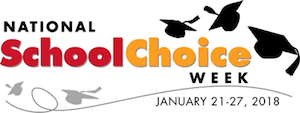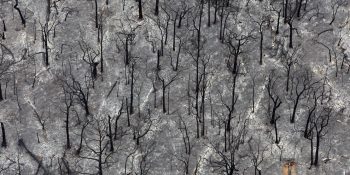
COLORADO STATE UNIVERSITY EXPANDS TO BOLSTER FEMALE UNDERGRADS’ OF GEOSCIENCE MAJORS
To retain more undergraduate women in geoscience majors, a supportive network that includes faculty mentorship seems to be a key driver, according to a new study led by Colorado State University.
The study, published earlier this month in the journal PLOS ONE, is the first official result from an ongoing effort led by Emily Fischer, assistant professor of atmospheric science. Fischer and colleagues from seven universities across the Front Range, Wyoming and the Carolinas are in the fourth year of a five-year, $1.7 million National Science Foundation grant for a program called PROGRESS (PROmoting Geoscience Research, Education and Success). They are investigating how best to attract and retain women in traditionally male-dominated science fields, particularly earth and environmental sciences.
“Our program seems to be helping students better identify as scientists, and giving them a stronger intention to remain in the earth and environmental sciences,” said Fischer, who led the rollout of PROGRESS in 2015 at CSU.
Expanding networks
About 150 women across the seven participating universities, including about 30 at CSU, are involved in PROGRESS. The program includes an introductory weekend workshop and pairing students with female mentors, typically graduate students or postdocs. For the study, the PROGRESS women’s outcomes were compared with a separate group not participating in PROGRESS.
Results show that a program like PROGRESS can expand a student’s network of support by connecting them with people, particularly other women, they view as role models. The students are then more inclined to further expand those networks on their own, notably with faculty in earth and environmental sciences.
“As part of our mentoring and professional development activities, we are not always directly connecting our PROGRESS students with faculty, but there is something about their interaction with faculty members that is an important predictor in their intention to stay in the earth and environmental sciences,” Fischer said. “That surprised us; we didn’t expect this to be so important.”
Reducing attrition
The aim of PROGRESS is to reduce the attrition of women who begin college as science majors but don’t stay there, said paper first author Paul Hernandez, assistant professor in the Department of Learning Sciences and Human Development at West Virginia University. “We focus on women in STEM majors within their first or second year of college and work to support those women through to graduation.”
The program was born out of the need to increase diversity among professionals in the geosciences, Hernandez said. This is based on the premise that higher diversity yields more scientific innovation. PROGRESS is largely modeled after a peer mentoring program for professionals involved in the Earth Science Women’s Network.
PROGRESS leaders are continuing to track their participants and learn more about how the program influencing their academic and career paths.
“It’s promising to have a tangible, doable thing that appears to make a big difference in women’s retention in the sciences,” Fischer said.
Learn more: https://geosciencewomen.org/materials/

UNIVERSITY OF COLORADO — BOULDER — INTRODUCES NEW DEGREE
The University of Colorado Boulder is launching an online, post-baccalaureate degree in computer science, a move designed to help meet the changing needs of students as the national computing workforce continues to expand.
The new CU Boulder program was started in part to help those with diverse academic backgrounds enter the computer science field. The new CU Boulder degree is tailored to people who already have a bachelor’s degree but do not have the prerequisite coursework for graduate study in computer science.
Despite an enrollment surge in computer science degree programs in the U.S. and Canada in the past decade, there currently are nearly 500,000 computing jobs unfilled in the United States. This is leading many workers to consider career switches, said Dean Bobby Braun of the College of Engineering and Applied Science.
“This year, while schools around the country were struggling to hire faculty, CU Boulder’s Department of Computer Science increased the number of its faculty by 50 percent to leap ahead of the growing demand for computer science graduates across the state,” said Braun. “This new degree is part of our overall strategy to prepare the workforce that the 21st century requires.”
CU Boulder’s computer science department has a history of innovation in computing education, having launched a Bachelor of Arts degree in 2013 to meet demand from students in the College of Arts and Sciences, said Braun.
The new online program will include foundational coursework in topics like algorithms, programming languages and software development, as well as elective options in fields like information visualization and data mining. The program can be completed in one year for someone studying full time, or three years for a part-time student.
“This program is just as rigorous as our on-campus Bachelor of Science or Bachelor of Arts degrees, and taught by the same faculty,” said Professor Dirk Grunwald of computer science, one of the new program’s leaders. “The only difference is we focus on core computer science classes so students can complete the degree quickly.”
Applications are being accepted now and the first classes will start in January 2018. For more information about the computer science online program visit colorado.edu/cs.
COLORADO STATE UNIVERSITY RECOGNIZED AS TOP PERFORMER IN

2017 SUSTAINABLE CAMPUS INDEX
Colorado State University has been recognized as a top performer in the 2017 Sustainable Campus Index, achieving the highest spot in public engagement, tying for first place in research, and ranking second in diversity and affordability.
The 2017 Sustainable Campus Index, a publication of the Association for the Advancement of Sustainability in Higher Education, highlights top-performing colleges and universities overall and in 17 impact areas, as measured by the Sustainability Tracking, Assessment & Rating System, also known as STARS.
Among the highlights, CSU also tied for second place in campus engagement and stood in fourth place in the categories of curriculum; water, encompassing conservation, recycling and reuse; and coordination and planning (tied with three other universities).
“This is great recognition of the incredible work done by our faculty and students to intentionally include aspects of sustainability into the many different things we do at Colorado State,” said Rick Miranda, CSU’s provost and executive vice president. “It is critical that we not only research how to make a more sustainable world, but also that we teach others these critical lessons – and strive to operate our campus in a sustainable way, as an example to all.”
In public engagement, the Education and Outreach Center at CSU’s College of Natural Sciences was highlighted for its work with the National Park Service to develop STEM kits for 4-12 grade students. (STEM stands for science, technology, engineering and math.) The kits allow students visiting parks in Alaska to learn more about climate change through ice cores and permafrost.
“Being recognized as a top performer in seven different categories ranging from curriculum to research, and from engagement to diversity, demonstrates CSU’s broad and deep commitment to sustainability across campus,” said Tonie Miyamoto, co-chair for the President’s Sustainability Commission and director of communications and sustainability for Housing & Dining Services. “Our students, faculty, and staff should be very proud of this achievement.”
CSU is the first university in the world to have its sustainability efforts go Platinum. Earlier this year, CSU achieved the highest possible STARS rating from the Association for the Advancement of Sustainability in Higher Education for the second time.
“Colorado State University’s inclusion in this report shows its significant leadership and commitment to advance sustainability,” said AASHE’s Executive Director Meghan Fay Zahniser. “We recognize CSU for working to secure a thriving, equitable and ecologically healthy world through its comprehensive sustainability efforts.”
Colorado State University’s STARS report is publicly available.
Learn more about CSU’s composting efforts.
SPREAD THE NEWS
COMMENT, Like, Follow & SHARE @I70Scout












